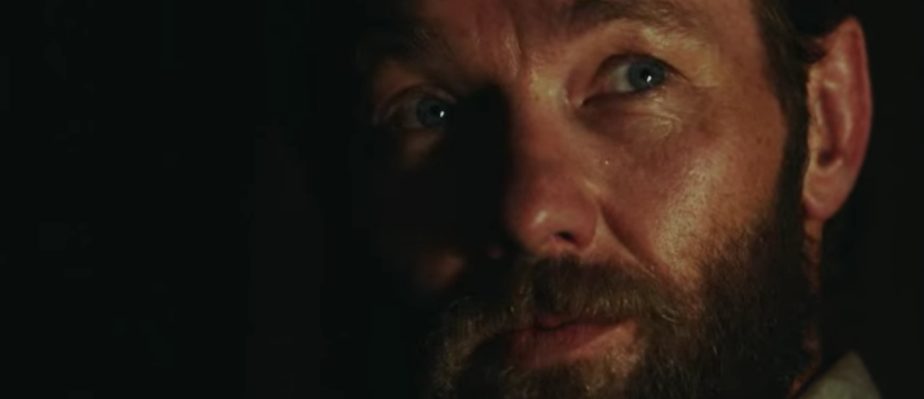Review: 'It Comes at Night' Succeeds With Thrills

Casey Campbell ’19/ Emertainment Monthly Staff Writer
Something is terribly wrong with Travis’ (Kelvin Harrison Jr.) grandfather, Bud (David Pendleton). His skin is covered with bulbous lesions, the whites of his eyes are becoming infected with a black malady, and his breathing is shallow and stilted. Travis and his mother Sarah (Carmen Ejogo) and father Paul (Joel Edgerton) look on at the grandfather through gas masks. The older man is infected, and it’s contagious. Saying their goodbyes to Bud, Paul and Travis wrap him in his bed blankets and lay him in a wheelbarrow to take him outside. At the site of a small pit, Paul puts a pillow over Bud’s head and executes him with a pistol, while Travis looks on.
This small family, shrunk smaller by the little known infection, survives together in their house in the woods. With windows boarded up, and padlocked doors, the family seems to hide from whatever could be outside. As a taught thriller, the film plays out in Hitchcockian fashion in a single location. The family’s house is a vessel for the terror, not because of some monster lurking in the night, but because of the monster that we can become when willing to survive.

This intruder named Will (Christopher Abbott), after a grueling interrogation from Paul, explains that he didn’t know they were living in the house, that he and his family are just trying to survive. His family, living some fifty miles away, can trade with Paul’s family, as they have chickens and a goat. After discussing it with Sarah, Paul decides to trust this man and sets out to bring Will’s wife and young son back to their house.
Director Trey Edward Shults, who also wrote the film, has a firm grasp on tension. His dialogue sequence between a tied-to-a-tree Will and an intimidating, gun wielding Paul, was filmed with harsh close ups, leaving the audience little room to breathe. The camera, helmed by DOP Drew Daniels, lent to the unnatural feel of the movie, by smoothly traversing the rough terrain of the woods on a steadicam. By utilizing fluid motion and long takes, the film is more quietly taut because it feels unnatural. Daniels also manages to make darkness beautiful, in the nighttime dream sequences. Long hallways lit by a single lantern ooze fear, while being framed and shot with slowly building intensity.

It Comes At Night is a great example of barebones cinematic storytelling. Next to nothing is learned of the characters, nor the world they live in, yet the themes are presented clearly and you understand the bitter struggles of living as they do. Dynamic performances from the whole cast truly help this quiet horror thriller reach higher than it’s scant, yet intelligent, script reach towards.
Overall Grade: A
Watch The Trailer: [embedyt] https://www.youtube.com/watch?v=6YOYHCBQn9g[/embedyt]